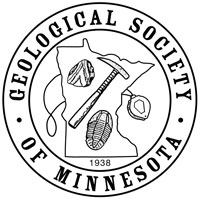Seminar Lab Date:
Seminar Lab presenter:
Seminar Lab Subject:
Seminar Lab Location :
A recording of this lecture is available on the Geological Society of Minnesota YouTube channel here: https://www.youtube.com/watch?v=3Gzv6dmrpaY
Seminar Lab Details:
Abstract: “Life-Cycle / Circular Economy Concepts – Potential Applications to Minnesota’s Mineral Resources”
With few exceptions, mineral deposits are not considered “sustainable” because they represent finite quantities of mineral-based natural resources. However, over the past few decades, the concept of “sustainable development” in the minerals industry has become increasingly important as society faces new pressures from ever-increasing populations that strive for higher standards of living. At the same time as the demand for trace and rare metals is increasing due to utilization in both conventional industries and in new energy and electronics technologies, the discovery of large “high grade” deposits has become increasingly rare. This necessitates use of large lower grade deposits, which have the potential to increase waste and environmental disruption if not managed effectively, as a source of these metals. Concurrently, societal emphasis on minimizing environmental impacts and recognition of social and economic justice issues associated with natural resource extraction have become increasingly important to understand and address. A key requirement for sustainable development is a shift from a conventional linear economy – “use it once and throw it away” – to a circular economy, in which all products are reused, repurposed and/or recycled, such that their components are retained in the resource pool. Changing to a circular economy will require new ways of thinking about mineral resource extraction, such as considering the potential for co-production, developing new product streams from “waste” materials, and reutilization of mining infrastructure for other purposes. Such advances will also require new methods for characterization and extraction of lower grade or rare resources, more effective and efficient processing of mineral resources that simultaneously allow growth of the economy and protection of the environment, and a focus on corporate social responsibility. This presentation will focus on concepts such as circular economies, life-cycle thinking, and social license, focusing on applications that could increase the “sustainability” of mineral resources.
Biography: George Hudak is the Research Group Manager for the Minerals & Metallurgy Strategic Research Platform at the Natural Resources Research Institute (NRRI), an applied research lab that is part of the University of Minnesota system research enterprise. In that role, he guides the overall research strategic plan for this platform.
Hudak is an economic geologist/applied volcanologist with specific expertise in exploration for Precambrian-age (>2.5 billion year old) volcanic- and structurally-hosted base- and precious metal mineral deposits and their associated hydrothermal and mineralizing systems. While at the NRRI, he has worked on a wide variety of projects encompassing mineral potential in Minnesota, renewable energy storage, health-related mineralogy, hydrometallurgical processing of critical metals-bearing mineral deposits, and water treatment. Development of higher value products and more efficient utilization of mineral resources have been key components of the research he has contributed to at the NRRI. He is currently collaborating with colleagues from the US Geological Survey (USGS), Minnesota Geological Survey, and the Minnesota Department of Natural Resources on a USGS Earth MRI-funded project to evaluate critical mineral potential in northwestern Minnesota.
Prior to arriving at NRRI in 2009, Hudak spent eleven years as an Assistant/Associate Professor of Geology at the University of Wisconsin Oshkosh (UWO), where he focused his government- and minerals industry funded research and consulting on volcanic and structurally-associated precious and base metal mineral deposits within Precambrian terranes across North America. He has done research at well known mining camps in the Wabigoon and Wawa-Abitibi terranes of the Superior Province, as well as prospects in the Vermilion District of northeastern Minnesota. He taught a wide variety of courses at UWO, including Introductory Geology, Mineralogy, Lithology, Mineral Deposits, Advanced Mineralogy, Volcanology, and a field course investigating volcanism and hydrothermal alteration at Yellowstone National Park and Craters of the Moon National Monument. Since arriving at NRRI, Hudak has also taught several courses at the University of Minnesota Duluth, including the Precambrian Research Center geology field camp, Mineralogy and Economic Geology. He has also co-led an Institute on Lake Superior Geology field trip to examine the geology of Iceland.
Hudak is a Registered Professional Geologist (P.G) in Minnesota and Wisconsin, and holds a Professional Geoscientist License (P.Geo.) in Ontario. He is a Fellow of the Society of Economic Geologists and also serves as a Mentor for the Society. Hudak currently serves as a Director for the Minnesota Center for Minerals Resource Education (MCMRE), and is an Adjunct Professor in the Department of Earth and Environmental Sciences at the University of Minnesota Duluth.
He received his Bachelor’s, Master’s and Doctoral degrees in Geology from Carleton College, the University of Minnesota Duluth, and the University of Minnesota, respectively.
